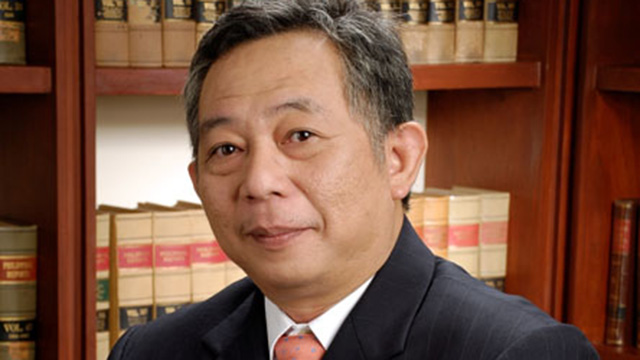
HONG KONG (UPDATED) – The disappearance of 5 Hong Kong booksellers has sent shivers through the semi-autonomous city as anxiety grows that Chinese control is tightening.
Bookshops are removing political works from their shelves, while publishers and store owners selling titles banned in mainland China say they now feel under threat.
The 5 missing men all worked for publishing house Mighty Current, known for books critical of the Chinese government, and are feared to have been detained by mainland authorities.
But it is the latest disappearance that has triggered the most outrage.
Publisher Lee Bo, 65, was last seen in Hong Kong – the only one of the five men to have disappeared while in his home city.
"The biggest problem is if they really came to Hong Kong to snatch people. It has never happened before," Jin Zhong, a mainland-born, Hong Kong-based publisher of banned books, told Agence France-Presse.
"If it becomes a norm and people can be snapped up anytime from here... it is a big blow."
The other four men are believed to have gone missing when they were visiting southern China and Thailand.
"As a free society, we are supposed to be able to provide an open platform for different voices in Hong Kong," said Paul Tang, owner of the city's People's Recreation Community bookstore, which sells titles banned on the mainland.
Tang described the disappearances as "white terror".
"None of us know how far it will go," he said.
There were new reports Thursday that mainland agents had threatened two more Hong Kong-based publishers involved in putting out books about political intrigue on the mainland, and had paid for some books to be destroyed.
City at a crossroads
Furious pro-democracy lawmakers, activists and residents, who believe Lee was kidnapped by mainland authorities, say Beijing is trampling the "one country, two systems" deal under which Hong Kong has been governed since it was handed back by Britain to China in 1997.
The two sides agreed Hong Kong was to preserve its freedoms and way of life for 50 years – Chinese law enforcers have no right to operate in the city.
The disappearances come against a simmering backdrop of disaffection over increased interference from Beijing in politics and education.
In 2014 tens of thousands brought parts of Hong Kong to a standstill for more than two months after Beijing imposed restrictions on candidates for the city's next leader.
There have also been recent protests over perceived political appointments at universities.
"If it was really a deliberate act, I think it serves to give a strong signal to the people of Hong Kong that the Central government is no longer willing to tolerate anything which is causing embarrassment to them," pro-democracy lawmaker Kwok Ka-ki told Agence France-Presse.
"We are at a crossroads – if we tolerate this, more will come, so we have no choice but to say no."
Books removed
The tiny bookstore in the busy shopping district of Causeway Bay run by the missing booksellers was one of dozens in Hong Kong to sell books banned on the mainland.
Shelves were stacked with titles covering behind-the-scenes political wrangles, private stories of Chinese leaders and unreported corruption scandals.
The shop has been closed for days.
Industry sources say the majority of customers visiting the stores come from the mainland, ranging from ordinary citizens to party officials keen for information on what may be a state secret back home.
At Paul Tang's shop, customers flick through a stack of books entitled "The Secret Emotional Life of Zhou Enlai", a former leader of the Communist Party.
"I think in Hong Kong people should be able to enjoy such freedom," says one customer, a Hong Kong photographer in his 40s.
"What has happened shows that the 50-year promise is just a slogan."
The disappearances have already spooked some shops into pulling books.
Agence France-Presse has learned that stores in the mainstream Page One chain have removed controversial political titles.
"We used to sell them but we don't do it anymore. We have received instructions that we don't," said one source from the chain.
Another said: "Some have been returned (to distributors) and some have been taken off (shelves)."
For Tang, the turn of events has come as a terrifying shock.
"We need to have these books to inspire those who haven't had a chance to receive information," he said.
"(But) if one day someone comes to me and says my personal safety will be affected if I continue to do this, I will have no option and quit." – Rappler.com




















